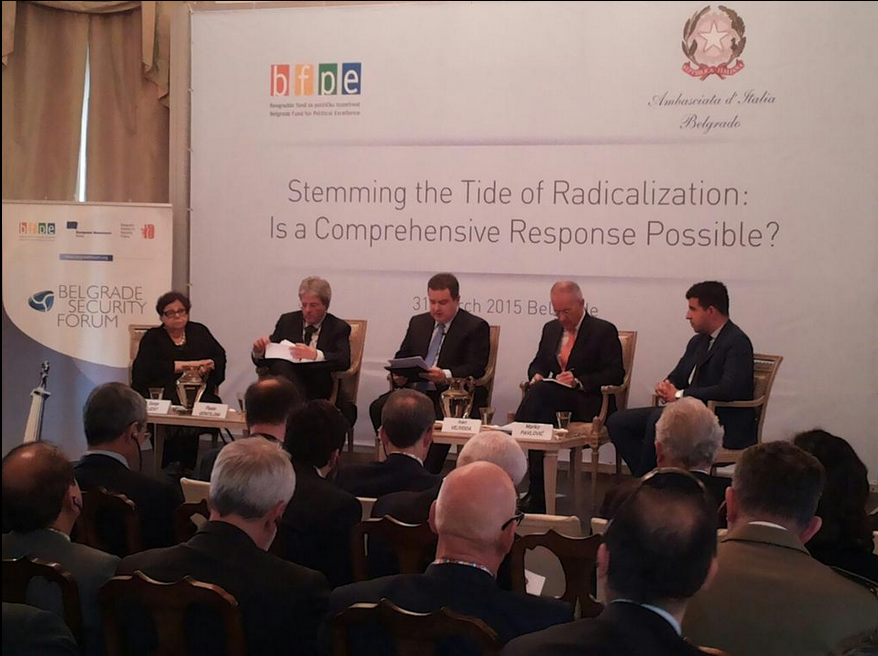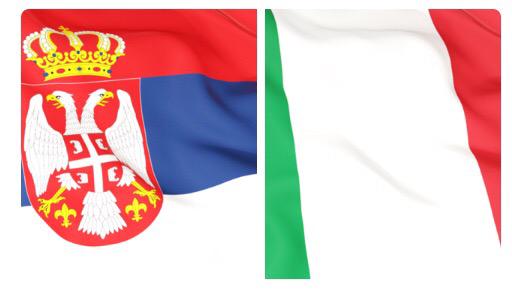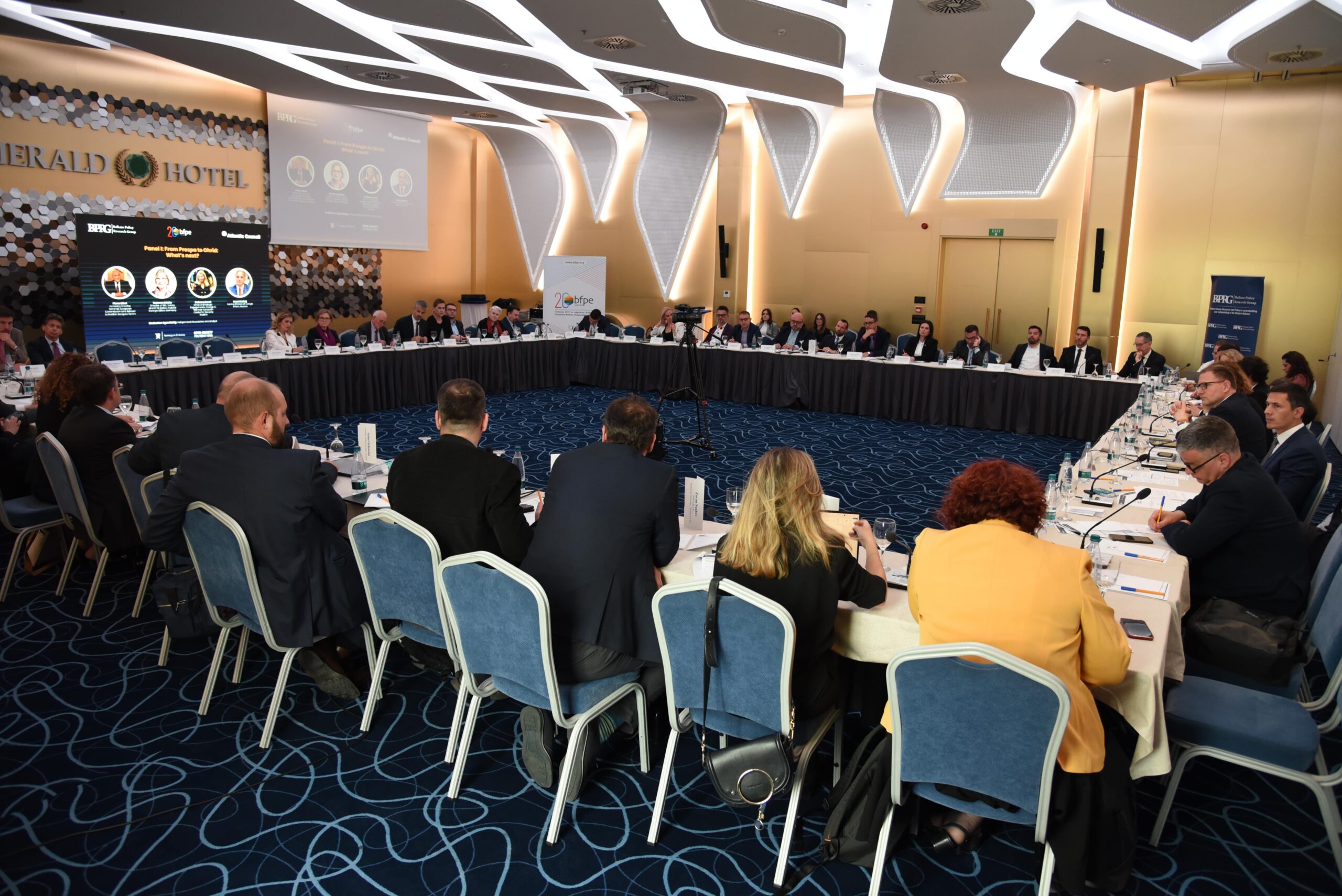In order to fight radicalism, terrorism and extremism it is not enough to rely on military means; cooperation of the Islamic community should be sought after as well, along with the coordination and exchange of information between security actors, agreed participants in the panel discussion „Stemming the Tide of Radicalization: Is a Comprehensive Response Possible?“.
Take a look at the VIDEO GALLERY from the event.
Panelists also concluded that economic and social problems do not represent the key reasons why individuals from Western Europe join radical islamist groups and how in that sense migrants, who leave their countries first and foremost for those reasons, are not terrorists’ primary target.
BFPE retweeted
Today @PaoloGentiloni in Serbia w/Dacic, @SerbianPM, @predsednikrs, @BFPE_BFPI panel
He said how in Raška region (Sandzak) and in Kosovo are active radical islamist preachers who, in religious centers which are financed from abroad, preach an extremist interpretation of their religion and recruit young men for wars fought abroad.
„The number of mercenaries from Serbia, mostly from Raška region and from Kosovo is small when compared to the total number of foreign fighters in extremist groups“, said Dačić. He explained how the number slightly exceeds 100 people; and should not be understood as negligible, since these people will once return to Serbia.
Italian chief of diplomacy Paolo Gentiloni stressed how the Balkans region, due to its geographical position, is exposed to threats coming from both Mediterranean and the Middle East; the same threats Italy is exposed to.
„It is commendable that the countries of Western Balkans have established strong cooperation in the fight against terrorism“, said Gentiloni and stressed how exchange of information on persons seeking to join jihad is all important.
He also said how there are several cases when Serbia and Italy cooperated, managing to prevent fighters going to Syria.
Turning his attention to the „Arab Spring“, Gentiloni warned that the situation in the past three and a half years has become even more complicated then it was, with the emergence of three negative factors – political Islam, fractional and tribal divisions and lastly the Islamic State (IS).
„Tribal divisions in Syria and Iraq are being deepened, thus starting to present a threat to our countries as well“, said the Minister adding how, even if the IS and Boko Haram in Nigeria are destroyed by military action, this will bring to nothing if the circumstances themselves don’t change.
„Precisely Islam is our partner. It is important to have the Islamic world with us. To defeat radical groups, we must have the support of the Islamic communities, especially Sunni community in Iraq and the region“, pointed Gentiloni.
Asked whether Europe should be considered responsible for the situation in Libya, because after the overthrow and execution of Muammar Gaddafi no democratic institutions have been established, he said that the West did not respond properly to the collapse of the Gaddafi regime, Italy included.
Gentiloni believes that Libya should be first stabilized, and then an EU operation/mission should take place, sharing the workload evenly among member countries.
Vice president of the German Marshall Fund of the United States, Ivan Vejvoda, said that the international community was slow to respond to the events in Syria.
The fact that there are today jihadists who were born and raised in the West, he believes has to do with the strengthening of the right wing parties and long-term economic crisis in Europe.
Vejvoda pointed how radical movements are cunning in the way they employ social networks, and how the IS has close to 10.000 tweets daily. “We are slow to respond to this hybrid warfare“, concluded Vejvoda.
Panel discussion was organized by BFPE in the Residence of the Italian Ambassador in Belgrade.
Text and video: Tanjug, media partner of the Belgrade Security Forum; photos BFPE



 Giuseppe Manzo @beppemanzo
Giuseppe Manzo @beppemanzo












